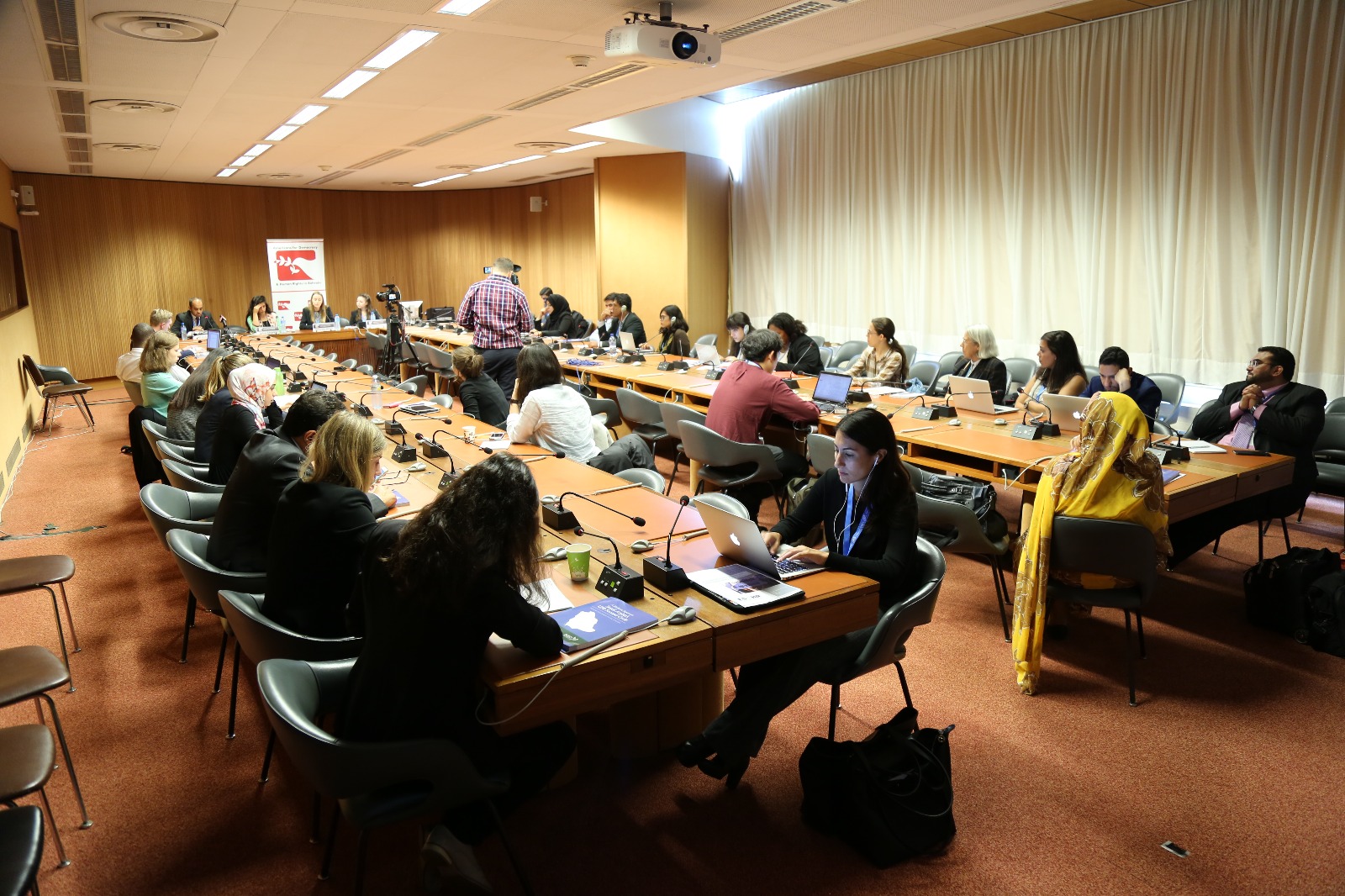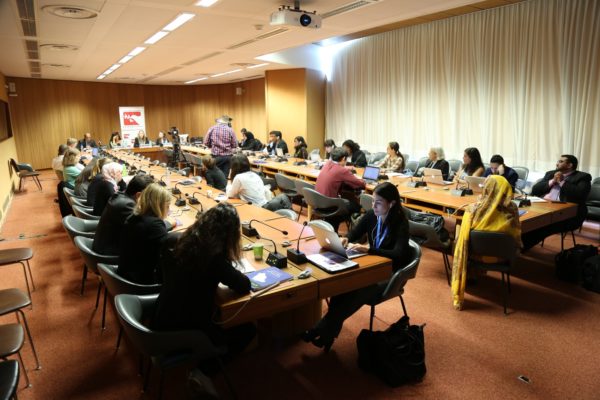
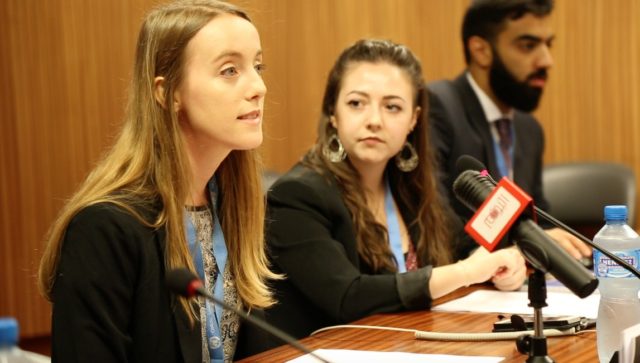
15 September 2016, Geneva, Switzerland – Americans for Democracy & Human Rights in Bahrain (ADHRB) and the Bahrain Institute for Rights & Democracy (BIRD), together with a larger group of NGO sponsors, organized a panel event entitled “Bidoon: The Plight of Stateless Persons in the GCC.” The event was held in parallel to the 33rd Session of the Human Rights Council (HRC) in Geneva.
Moderating the panel was Amanda Milani, ADHRB’s UN Liaison, who kicked off the discussion by introducing some of the problems faced by stateless persons in the GCC. Stateless populations in the GCC are one of the most systematically discriminated populations in the region. They face exclusion and discrimination in all aspects of life including equal access to employment, education, medical services and other economic opportunities. Moreover, being stateless in spite of being born to and belonging to the same community for so many years, has a psychological impact beyond what anyone of us can imagine. Amanda asked that pressure be put on the GCC countries to reform or repeal laws that reproduce statelessness.
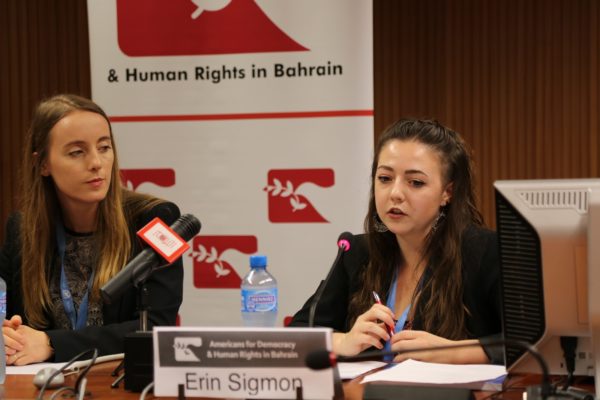
Erin Sigmon, ADHRB Advocacy Assistant, introduced the problems faced by stateless persons in Saudi Arabia. Persons in the GCC are often rendered stateless for political reasons, however, many are in that position not necessarily for any dissenting political views that they might hold. Stateless women especially face serious disadvantages in Kuwait and Saudi Arabia. This stems from the inability to obtain state papers causing the inability to get married, obtain an adequate education, enjoy healthcare and going into employment. This, coupled with the male guardianship system, creates an impossible situation for Saudi women. Erin also raised the inability of women from passing on their nationality to their children. This creates a never-ending cycle of statelessness in the Gulf. In Kuwait, the overwhelming majority of stateless persons lack a basic education. Saudi Arabia and Kuwait should grant the Bidoon lawful residents and naturalisation. No person should live in fear of being targeted because the state doesn’t recognise them as citizen.
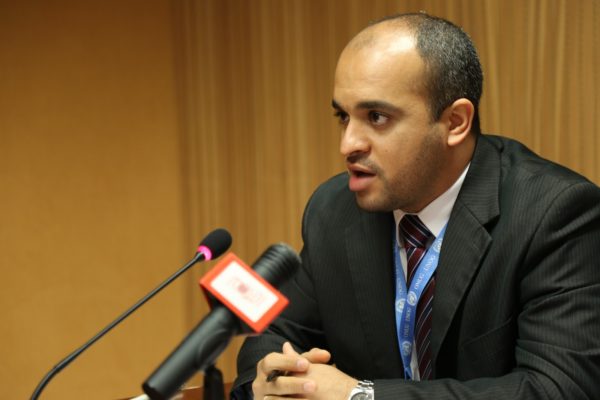
Ali Dubaisy, Founder of the European Saudi Organisation for Human Rights, highlighted the plight of the Bidoon population as one of key areas of failure in Saudi Arabia. He spoke about the lack of reporting on Saudi Bidoon, in comparison to Kuwait asking the question of why this issue does not get enough coverage such as other rights abuse in Saudi such as death penalty. The framework of laws are intentionally weakened in Saudi Arabia in order to retain control to the King who is given power greater than the rule of law, while religious fatwas are used to encourage dependency on the king. The government has outlawed all dissent including protests and calls for reforms, which encourages the government to be critical of the Bidoon. Many Bidoon are highly qualified professionals but are becoming discouraged. They cannot demand rights because they face reprisals, as such, there has been an increase of cases of suicides in the Bidoon population. Without a constitution, there are no protections for stateless persons. Without human rights protections, and facing heightened security measures, living in Saudi Arabia has become like living in a large prison for the Bidoon.
Nawaf Al Hendal, Founder of Kuwait Watch, joined the discussion from Kuwait via Skype. Because of heightened security, surveillance and the lack of human rights protections, Nawaf cannot travel to the council for risk of facing reprisals by the government. The issue of statelessness in Kuwait is so much more complicated than people think. There are a huge range of issues that they face where they are denied access to all aspects of public life. Although the Kuwaiti Emir initially promised wider citizenship rights for the Bidoon, this later largely did not come into fruition. If those individuals raise any form of dissent, the government threatens their already very limited granted rights. The Kuwait Emir is forcing the Bidoon to sign documents agreeing not to speak out about their problems. If breached they will not get IDs and their families will face reprisals. In addition, Kuwait agreement with Comoros, paying a large sum of money to send away the Kuwait Bidoon in this manner is another form of human trafficking. This very serious discrimination must be addressed.
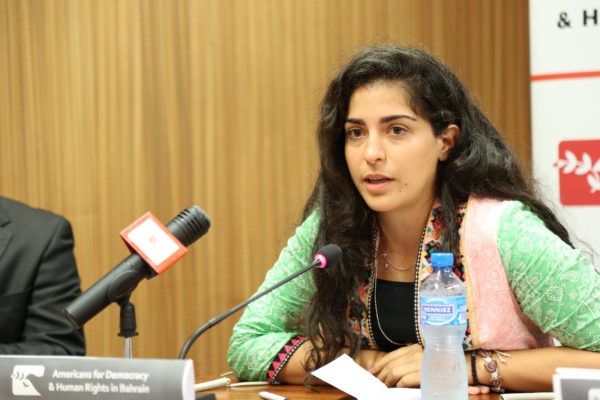
Zahra Al-Barazi, Co-Founder of the Institute on Statelessness and Inclusion, started a discussion by introducing her 2011 experience of visiting stateless persons in Kuwait. Living in stateless ghettos away from the general population, their living conditions were much worse than expected. Without adequate homes, they face serious human rights problems.
The Gulf hosts large amounts of stateless people although no proper statistics are available. Stateless persons become invisible without a right to education, healthcare or employment. Nationality in and of itself is a human right and not having nationality is a violation. Bidoon families suffer from severe psychological effects and suicide is prevalent. They are used for political reasons and have become a scapegoat for other problems in the country, always used in negative stories. Gender discrimination is very conservative in Gulf and racial and religious discrimination prevalent when acquiring nationality. The situation is unique in the Gulf where discrimination against people is purely because they do not have a nationality. Being stateless has become an ethnicity in itself and one it is one of the few region that is not impoverished but has huge group of Bidoon.
This side event was sponsored by the European Saudi Organization for Human Rights, the Institute on Statelessness and Inclusion, Kuwait Watch, and the Gulf Center for Human Rights.


